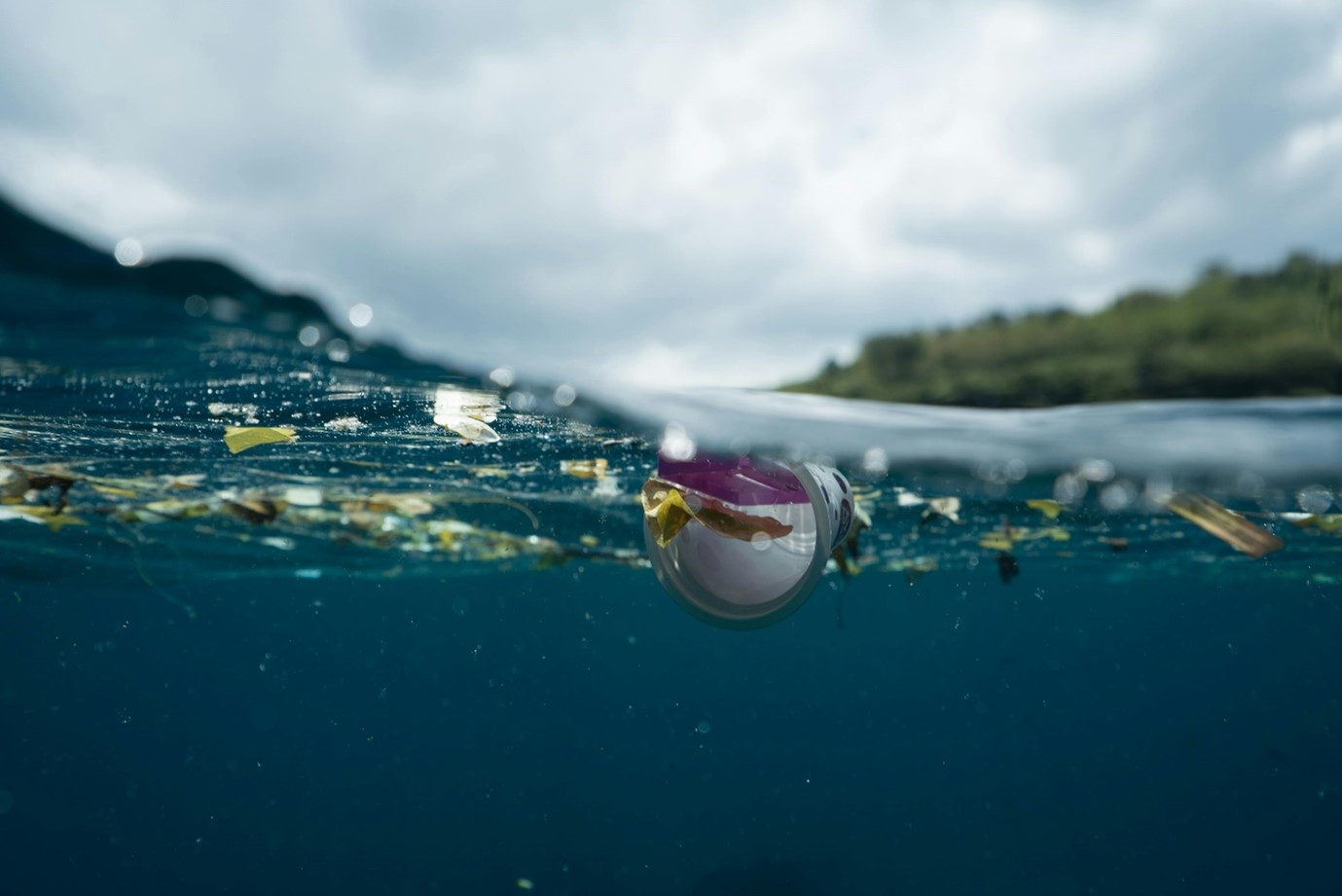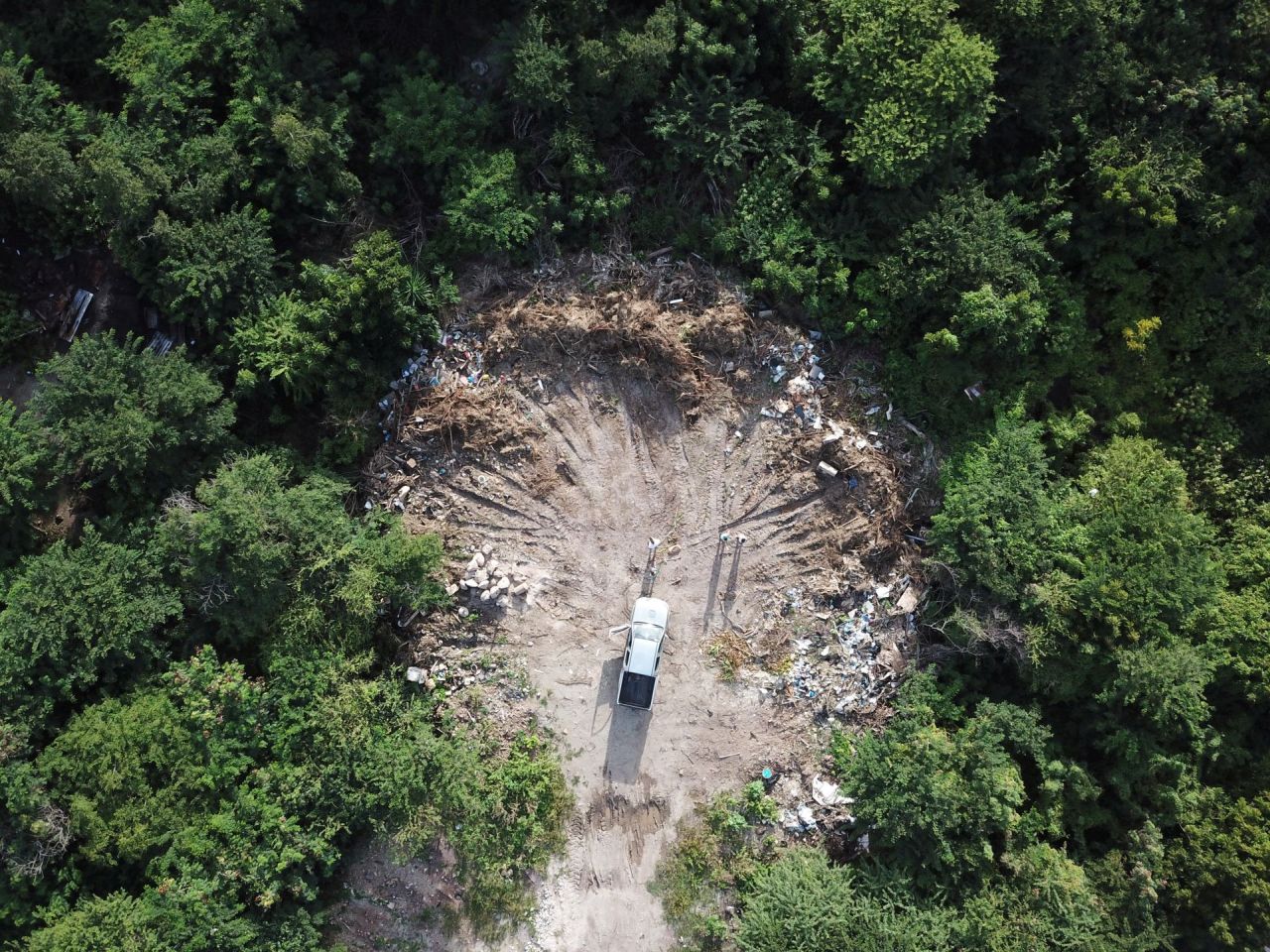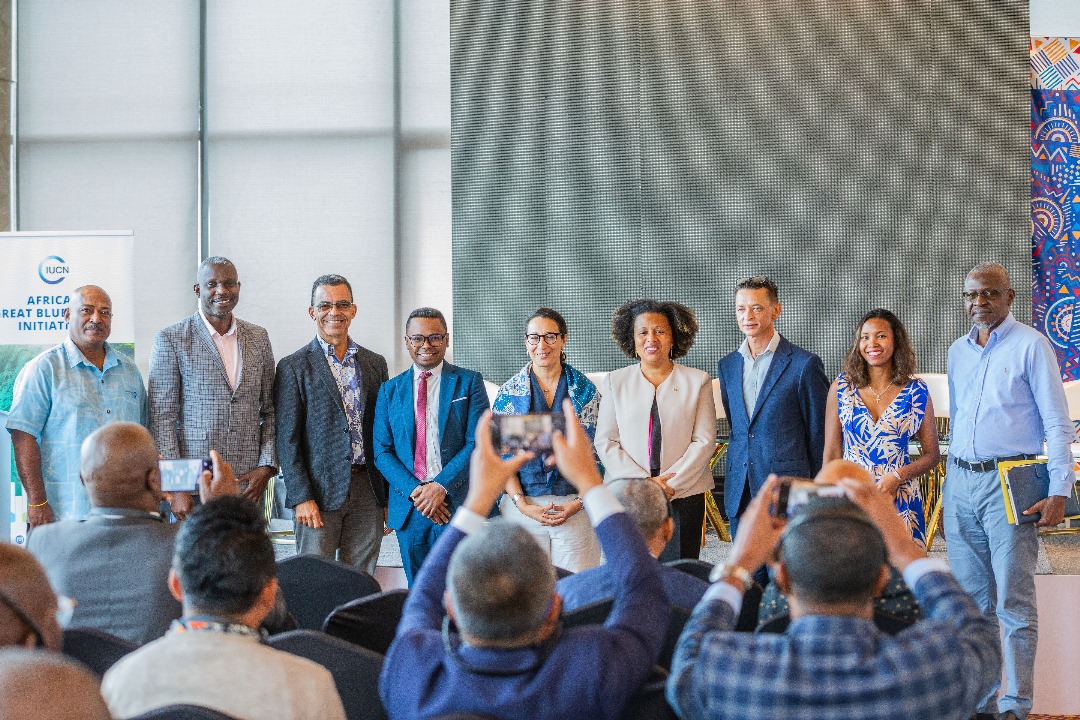Small Island Developing States call for ambitious Global Plastics Treaty – INC-2 Paris
To address the threat that plastic poses to our ocean, climate, economies, and health, Small Island Developing States (SIDS) have called for an ambitious UN Treaty, which acts across the whole plastics lifecycle, during their meeting at the Second Session of the Intergovernmental Negotiating Committee on Plastic Pollution in Paris (INC-2).
In an official INC-2 UNEP Side Event held on 1 June, IUCN, with island nations of the Dominican Republic, Fiji, Palau, and the SIDS’ representative group the Alliance of Small Island States (AOSIS), were joined by several organisations calling for a way forward that focuses on solutions, just transitions, and knowledge exchange for improved capacity. Organizations supporting this call included Common Seas, The University of Mauritius with The International Science Council, The Ocean Cleanup, Searious Business, Blue Keepers, and The United Nations Global Compact, which represented CEOs committed to sustainability.
The statement discussed working together to ensure the unique requirements of SIDS are heard, including:
- Advancing advocacy towards a robust treaty, taking inspiration from the key role SIDS played in keeping 1.5 degrees on the table during climate negotiations
- Dealing with the trans-boundary nature of plastic pollution, and legal recourse to manage legacy plastic in the ocean
- Addressing pollution from Abandoned, Lost or Discarded Fishing Gear (ALDFG).
- Tackling high levels of plastic waste generated by tourism
- Developing effective waste management solutions for SIDS, financed by plastic producers
- Ensuring a just transition
Four perspectives among many are highlighted here.
Ambassador Ilana Seid, Permanent Mission of Palau, Chair of Pacific Small Island Developing States, said: “The small islands are disproportionately affected by plastic pollution because of our location near the intersections of many large ocean currents, our remoteness, our small economies and lack of access to large markets with sufficient waste and recycling facilities. The new instrument must include obligations to clean-up existing ocean plastic, not just for our own benefit, but also for the benefit of the global community. The Pacific, in particular, supplies much of the world’s fisheries and seafood, which is being contaminated by plastics and microplastics. Remediation of ocean plastics should be a priority for all of us."
Jo Royle, CEO of Common Seas, said: “Despite the huge national efforts of SIDS to tackle plastic pollution, more-and-more is arriving on their shores, and plastic production is set to double by 2040. We need is a strong and comprehensive UN Plastics Treaty to stem this problem head on upstream. This global policy must cap and rapidly phase down plastic production; ban or severely restrict single-use plastic; mandate reductions in the chemical complexity of plastic; and require global standards for extended producer responsibility.”
João Ribeiro-Bidaoui, General Counsel & Director of Global Public Affairs at The Ocean Cleanup, said: “As we transition from open to regulated seas, it's crucial to see the high seas as a global responsibility. The pressing question is not only if states have a duty to address oceanic legacy plastic beyond their jurisdictions, but also how to formalize this. The new Global Plastics Treaty should make it mandatory for states to clean existing and future legacy plastic, underlining the high seas' status as a collective common good requiring improved collective management.”
Karine Siegwart, Senior Policy Advisor from IUCN, said: “As part of the triple planetary crisis, plastic pollution is detrimental to our terrestrial, freshwater and marine biodiversity and ecosystems. A healthy environment is not only the basis of humanity’s means of support, welfare and economies, but it is also a human right. The threats to SIDS in particular involve all aspects of life and the environment, requiring international legal responses to address plastic pollution across its lifecycle. Governments must ambitiously reduce plastic production, eliminate products and chemicals of concern and agree a treaty to end all plastic pollution by 2030. This will be a critical step towards achieving global biodiversity and sustainable development goals, and the commitments of the High Seas Treaty.”
The event highlighted that SIDS contribute little to global plastic production and pollution, yet their blue economies are disproportionately affected by legacy plastic and its climate and environmental impacts. SIDS also have low-lying and remote geographies, which hamper effective waste management. Their small market size limits influence on upstream actors, who continue to accelerate production of the plastic products that arrive on their shores and pollute their coastlines. As such, in 2022, SIDS supported the UNEA 5.2 Resolution 5/14 to end plastic pollution and work towards an international legally binding instrument that will focus on reducing plastic production, phasing out single use plastics, and transitioning to a circular economy.
For more information from IUCN on the plastics treaty process, please see:
- IUCN's work to influence policy for a global plastics treaty, please visit our Policy pages and resources.
- IUCN's global plastic news, projects and knowledge resources
- AFRIPAC: capacity building in West Africa
- Plastic Waste Free Islands blueprint for zero plastic waste (available in four languages)
- IUCN WCEL Briefings for Negotiators in English, French, Spanish, and Portuguese
About the organizations:
Common Seas is an international social enterprise that’s tackling the plastic pollution crisis by driving
new policy, investing in the circular economy, and catalysing a cultural shift in how we make, use and dispose of plastic. Partnering with Governments, businesses and communities, Common Seas delivers solutions to drive meaningful action against plastic pollution for the health of our economies, our bodies, and our Ocean. Common Seas champions Small Island Developing States (SIDs) by supporting decision-makers to set baselines, design policy and act on plastic, and to advocate for a UN Plastic Treaty which works for them. It helps hospitality businesses measure and deliver plastic reductions, enables education, and equips the next generation to solve the plastic challenge. Through ground-breaking research, it raises global awareness of the human health risks of plastic.
Alliance of Small Island States (AOSIS)
Since 1990, AOSIS has represented the interests of the 39 small island and low-lying coastal developing states in international climate change, sustainable development negotiations and processes. As a voice for the vulnerable, its mandate is more than amplifying marginalized voices as it also advocates for these countries’ interests. In terms of size, AOSIS closely resembles the countries it represents on the global stage, but often punches far above its weight, negotiating historic global commitments to cut greenhouse gas emissions, among other achievements.
Searious Business develops strategies and provides implementation support to businesses in SIDS, to prevent plastic waste through reduce – reuse – recycle solutions. This work is typically done in a systemic change approach, also involving instrumental policies, waste management players and governing bodies, e.g. in Plastic Waste Free Islands programme with IUCN.
The Ocean Cleanup x The Innovation Alliance
The Ocean Cleanup is an international non-profit project that develops and scales technologies to rid the world’s oceans of plastic. To do this, they implement a dual strategy: stemming plastic emissions via rivers and cleaning up what has already accumulated in the ocean. For the latter, The Ocean Cleanup has developed large-scale systems to efficiently concentrate plastic for periodic removal. This plastic is tracked and traced through DNV’s chain of custody model to certify claims of origin when recycling it into new products. To curb emissions via rivers, The Ocean Cleanup has developed Interceptor™ solutions to halt and extract riverine plastic before it reaches the ocean. Founded in 2013 by Boyan Slat, The Ocean Cleanup now employs a broadly multi-disciplined team of approximately 140. The foundation is headquartered in Rotterdam, the Netherlands, with a regional office in Kuala Lumpur, Malaysia. The Ocean Cleanup together with rePurpose Global Inc., is co-convener of the Innovation Alliance for a Global Plastics Treaty, a cross-sector alliance to advance the role of innovation, technology and entrepreneurship in the Global Plastics Treaty and accelerate systems change across the entire plastic pollution lifecycle, from source to sea.



